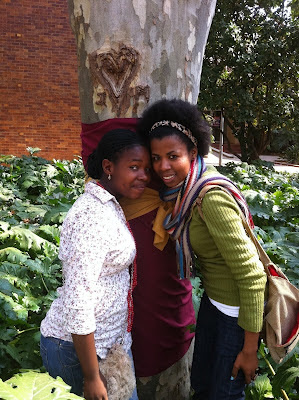UNICEF says sustainable development possible only with investments in children
By Adriana Alvarenga
At the Rio+20 Conference on sustainable development, UNICEF Executive Director Anthony Lake asked the world to consider what equity can do for development and children.
RIO DE JANEIRO, Brazil, 25 June 2012 – Throughout Rio+20, the United Nations Conference on Sustainable Development held last week in Rio de Janeiro, Brazil, UNICEF Executive Director Anthony Lake argued that a development model that leaves behind millions of the poorest children is both wrong in principle and unsustainable in practice.
“A recent IMF staff discussion note shows that as societies become
more equitable, economic growth is more sustainable over time,” said Mr.
Lake, speaking on Wednesday at the ‘Sustainable Development in an
Unequal World’ side event.
“If we can increase vaccinations so that fewer children die of
diseases we know how to prevent, if we can provide more micronutrients
so that young brains and young bodies grow strong, if we can give more
boys and girls a quality education, we will give children everywhere –
this generation and the next – the start in life they deserve and make
sustainable the future of which they dream. That is their right, our
responsibility and, I hope, one legacy of Rio+20."
Children left behind by development
UNICEF Director of Programmes Nicholas Alipui gave a presentation
highlighting the importance of education for sustainable development.
Education has the power to transform the lives of the most disadvantaged
– but it must be able to reach them.
“Investing in education – whether formal, informal, non-formal,
training or research – is crucial for achieving development, poverty
eradication, equity and inclusiveness,” Mr. Alipui said. “Each of the
three pillars of sustainable development – economic growth, social
development and environmental protection – is dependent upon education,”
he said.
Mr. Alipui was joined by Artur Moreno, 20, a participant in the Platform
for Urban Centres, an initiative developed by UNICEF in Rio de Janeiro
and Sao Paulo. Mr. Moreno also spoke of children being left behind by
development, drawing attention to the national averages that are used to
measure counties’ progress toward the Millennium Development Goals.
These averages conceal gaps and disparities within countries, he said.
"When you look at national averages, a country can meet, for example,
the goal of sanitation, with 84 per cent coverage. But I’m part of the
16 per cent who are still left behind and have no school, sanitation,
roads or health network in their community," Mr. Moreno said.
The Zero Hunger Challenge
During the conference, UNICEF also voiced its commitment to the Zero
Hunger Challenge launched by UN Secretary-General Ban Ki-moon. The
campaign unites support from several UN agencies, businesses and
governments.
"Food insecurity generates a hidden hunger that impairs the body and
the cognitive system forever. It is a permanent impairment, a tragedy
for the child and a loss for society," Mr. Lake said, noting that those
living in disadvantaged communities are worst affected.
Mr. Lake also emphasized the difference between food security and
nutrition security, noting that some food secure nations still have high
levels of undernutrition and stunting, the irreversible damage to a
child’s physical and cognitive development caused by insufficient
nutrients during the first two years of life.
Youth participation
Rio+20 highlighted the importance of youth participation in
decision-making, an approach UNICEF promotes because children and
adolescents will guide sustainable development for future generations.
"The younger generations cannot be seen as a problem but rather as
part of the solution," said Mr. Lake, calling for an intergenerational
dialogue on sustainable development.
Speaking at Rio+Social, a side event hosted by the UN Foundation,
Mashable and others, Mr. Lake joined Brazilian pop star and UNICEF
National Ambassador Daniela Mercury in a discussion of how social media
is giving young people a greater voice and helping to shape the debate
on sustainable development.
“UNICEF is using social media in a number of different ways – to draw
attention to issues that otherwise would not get enough attention,” Mr.
Lake said. “This would have been impossible ten years ago.”
The conference gathered leaders from around the world in Brazil, and
concluded after a week that initiated processes to put the world on
track towards sustainable development.
source: http://www.unicef.org/infobycountry/brazil_65170.html

Comments
Post a Comment